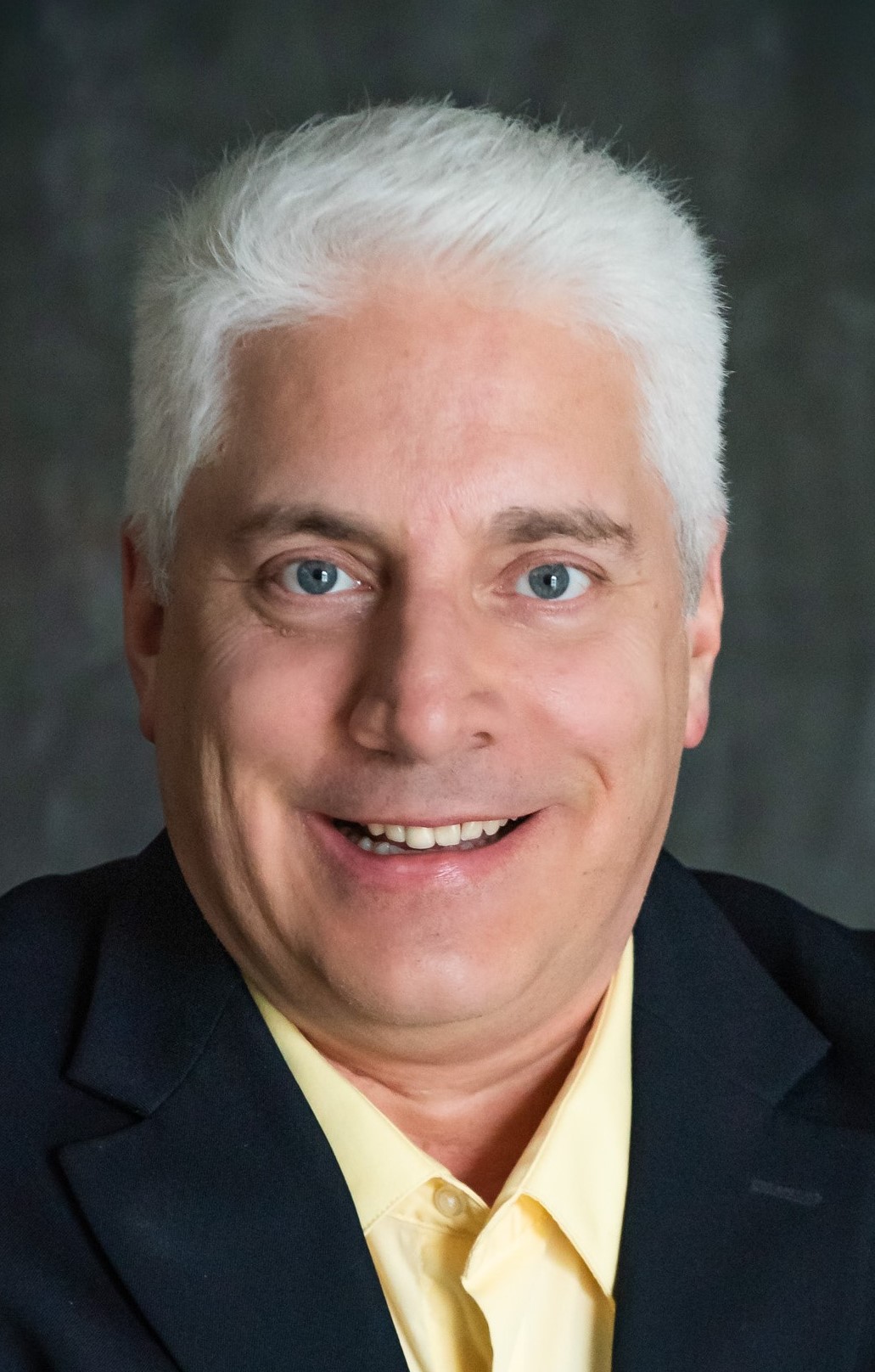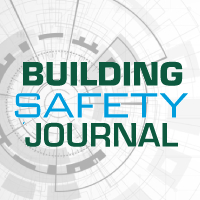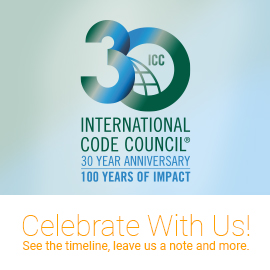
Gerard Cattani: Upholding the high standards of professionalism in the building safety community

![]() Whether you are new to the construction profession, an experienced tradesperson or an accomplished code professional looking to enhance your knowledge, advance your career or earn certification, you need a variety of education and certification options to help you reach your professional goals. Dedicated to strengthening the credibility of the International Code Council’s certification and education programs, the Professional Development Council (PDC) advises the Board of Directors on coordinated career path resources for Code Council members. The Professional Development Council is comprised of the Education Committee — that provides strategic direction and facilitates the development and delivery of comprehensive code-related courses to help code officials, inspectors and design professionals elevate their qualifications, advance and grow in their profession — and the Certification Committee, which promotes the professionalism of individuals in the built environment by providing professional examinations and certification services worldwide.
Whether you are new to the construction profession, an experienced tradesperson or an accomplished code professional looking to enhance your knowledge, advance your career or earn certification, you need a variety of education and certification options to help you reach your professional goals. Dedicated to strengthening the credibility of the International Code Council’s certification and education programs, the Professional Development Council (PDC) advises the Board of Directors on coordinated career path resources for Code Council members. The Professional Development Council is comprised of the Education Committee — that provides strategic direction and facilitates the development and delivery of comprehensive code-related courses to help code officials, inspectors and design professionals elevate their qualifications, advance and grow in their profession — and the Certification Committee, which promotes the professionalism of individuals in the built environment by providing professional examinations and certification services worldwide.
It takes the time and expertise of many individuals working through the numerous Code Council committees to shape it into the world-class membership association that exists today. Volunteers, one of the most important assets of the Code Council, play a key role in the day-to-day work of the Professional Development Council and are integral to helping develop the certification and education avenues that help building safety professionals to be effective in U.S. and global communities.
In this exclusive feature for the Building Safety Journal, we asked Gerard Cattani to share his experience serving on the Code Council’s Professional Development Council, his professional career, and any insights or advice he has concerning the industry.
Gerard Cattani
Facilities Program Director/Building Official
Orange County Public Schools
Orlando, Florida, United States
International Code Council member for 37 years
Building Officials Association of Florida
How long have you been in the industry?
Thirty-seven years.
What was the path to your career — how and why did you pursue a profession in building safety?
After attending shop class in elementary school, I realized that my interest in “building things” would follow me in whatever career path I chose to pursue. After college, I accepted a position as a carpenter working for a residential construction company building luxury homes on the north shore of Long Island N.Y. After learning and working in the construction trade for a short period of time, an opportunity arose to accept a position as a building inspector for a local municipality. While it wasn’t necessarily my intention of making that career path change a permanent one (the compensation package wasn’t all that attractive) it took only a short period of time in that position to come to the realization that this was where I belonged. I immediately developed a passion for building codes and the process of administering/enforcing construction standards in our community. In this new position, my exposure to building construction work would encompass not only residential home building but all types of construction including office buildings, mercantile establishments, university buildings, restaurants, condominiums and many others. I began to notice that quite a number of corrections needed to be made during the plan review and inspection processes that, if not corrected, could have resulted in potentially hazardous or catastrophic consequences. It was then that I realized that my interest in all things constructed turned into a driven responsibility to ensure that all construction taking place in the community I serve met the required codes and standards that would in turn save lives and protect property infrastructure. In the position I have been placed, I felt that I could make a difference in helping to ensure the safety of our construction workers, owners and building occupants through consistent building code enforcement during the design and construction phases of projects.
What major changes have you seen?
In my time of being a code enforcement official, I have seen the building code go from a softcover +/- 100-page booklet to the volumes of codes and standards we have today. Additionally, advancement in building technology is happening at such a rapid pace, it is quite a challenge to keep up with all the new tech and how it relates to code and standard requirements.
What excites you about the future of your industry?
As building technology expands and increases year by year, it is exciting to see how new building materials and construction methods result in stronger, more durable, attractive and sustainable construction. While there are many and varied opinions on climate and ecological issues, I believe that we can all agree on the fact that our home has limited resources and we must be good stewards to that end. The prospect of developing energy-neutral buildings is intriguing and likely to become a necessary, endeavor.
What do you see as most surprising about the work that you do?
I have found that those who devote their lives to the building and fire code enforcement industry, serve the profession with a passion uncommon to many other career paths. Those of us in this line of work do not have expectations of it being a wealth-building opportunity but have the drive to ensure that the buildings and structures we all enter every day of our lives are safe to occupy.
What led you to apply to become a member of the Professional Development Council?
Over the years I have seen the code enforcement profession struggle with its place of professional status. Some states required code officials to obtain licenses – some didn’t. Some required various types of certification — some didn’t. I saw the ICC’s Professional Development Council as a resource to bring clarity to the professional status of individuals in our industry.
What do you see as your role on the Professional Development Council/Education Committee/Certification Committee?
Serving as chairman of the Certification Committee, I feel that this is another opportunity where I can possibly make a difference. I am, with certainty, no smarter or more capable than those who serve with me on the committee, but my goal is to draw out the expertise of each committee member to ensure that the ICC certification process is the most relevant and professional it can be.
Being a part of the Professional Development Council provides you with an overarching view of the education and certification offerings provided by the Code Council. With that knowledge, what would you recommend to individuals who are entering the industry?
My advice to individuals entering the code enforcement industry would be to spend the time and effort needed to pursue the many educational and certification paths that the ICC has to offer. To become the most educated and professional code official possible while never forgetting to maintain a sense of humility and know that we in this profession are here to serve our community, state and nation to the best of our ability.
What has been your most satisfying accomplishment with your work on the Professional Development Council?
While technical and operational characteristics of the testing and certification process are all important, maintaining the integrity of the said process is of paramount importance. With the introduction of PRONTO a few years ago as a new method of taking certification exams, questions arose as to whether this new testing method would compromise the integrity of the process. While we are still working to streamline and clarify certain aspects of this testing venue, the diligent and skilled work by ICC staff with guidance from the Certification Committee has resulted in the PRONTO testing method becoming a notable success.
And finally, this last question is a fun one we ask for our Building Safety Journal readers. If you could have any superhero power, what power would you have and why?
If I could be granted any superhero power it would be having the gift of wisdom. While it has been said that knowledge is power, it is wisdom that causes you to excel at applying knowledge in an appropriate manner.
Thank you for your work on the Professional Development Council. Your dedication to strengthening the Code Council’s certification and education programs is impressive and we appreciate your commitment to upholding the high standards of professionalism in the building safety community.
About the Professional Development Council
The Professional Development Council recommends initiatives identified by the Education Committee and the Certification Committee to better serve the needs of the membership, coordinates the goals and objectives of the Education Committee and the Certification Committee, and identifies certification and education issues arising from Code Council policies that will improve or enhance the position of the association.
The Education Committee is committed to providing strategic direction and facilitating the development and delivery of the most comprehensive portfolio of code-related courses available to meet the needs of code officials, inspectors and design professionals to elevate their qualifications as well as help them advance and grow in their profession. The Education Committee is responsible for advising Code Council staff and the Board of Directors on matters related to the ICC Education Program and the Learning Center, reviewing and selecting the topics and presenters for the annual business meeting, providing a review and recommendation for the Educator of the Year award, serving as a resource for review of potential learning initiatives and curriculums within the Learning Center, providing new topics and concepts for learning initiatives within the Learning Center, promoting and encouraging members to take advantage of the training offered by the Learning Center, and relaying information provided by the membership to staff in order to improve programs.
“The insight and guidance the Education Committee provides the Code Council is beyond measure,” said Tracy Lendi, vice president of Training & Education for the International Code Council. “While not only offering a myriad of educational ideas, the committee offers a safe place to discuss and debate these ideas so we can provide comprehensive and effective training solutions to the building industry. Being a part of the Educational Committee is truly my honor and privilege.”
The Certification Committee is dedicated to promoting the professionalism of individuals in the built environment by providing professional examinations and certification services worldwide. It has sole authority over the rules and procedures of the ICC Certification Program, including such topics as the renewals process, examination security policies and disciplinary action. The Certification Committee is responsible for advising Code Council staff and the Board of Directors on all matters related to the Certification Program, maintaining the International Registry of current ICC Certified professionals, supporting international recognition of ICC Certifications, direction and oversight of the Examination Development Committees, and serving as a disciplinary board.
“It is a privilege to work with the members of the Certification Committee,” said Autumn Saylor, director of the International Code Council’s Assessment Center. “The Code Council appreciates the committee’s commitment to upholding the high standards of professionalism in the building safety community.”
From an array of training options for every individual to the ICC Assessment Center, the Career Center, the signature Safety 2.0 initiative, or its Scholarship Program, the Code Council is committed to supporting the education and certification of existing and future code officials.





